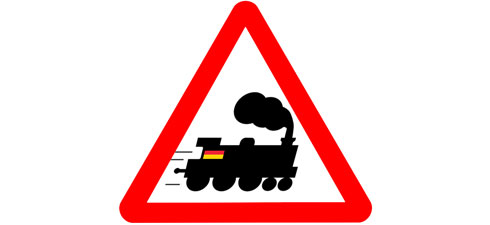 Germany’s getting lonely – not politically, but economically. No other major industrialised Western nation can boast such a phenomenal economic recovery. Hence the widening gap between Germany and the rest of the eurozone. While German corporate purchasing managers wax optimistic about the future, the mood is murky among their opposite numbers within the eurozone in view of the flagging figures released on 23 August.
Germany’s getting lonely – not politically, but economically. No other major industrialised Western nation can boast such a phenomenal economic recovery. Hence the widening gap between Germany and the rest of the eurozone. While German corporate purchasing managers wax optimistic about the future, the mood is murky among their opposite numbers within the eurozone in view of the flagging figures released on 23 August.
Yet the German upswing could be hamstrung by its sheer isolation. The export-driven German juggernaut is bound to lose steam if its major foreign markets can’t keep up. And wherever German exporters look, the prospects for their key markets are already dimming. The latest Ifo World Economic Climate index shows a slump in North America and Asia. And the growth reported for Western Europe simply reflects Germany’s good showing, which masks the actual plight of its neighbours.
Germany faces global headwind
The risk factors vary from country to country. The US, in spite of the historic stimulus package, has yet to see a sufficiently stable upturn to create enough new jobs. The jobless rate is still hovering around 10 per cent, which casts a damp over consumption, the driving force behind the US economy.
China, the second-biggest national economy on the planet, has the opposite problem: the risk of an overheating property market has induced the government to rein in lending. In the first five months of this year, China was the seventh-biggest market for German goods. The biggest by far is France, followed by the US, the Netherlands, Great Britain, and other European countries.
UK’s cost-cutting drive will throttle the economy
But the debt crisis is casting a pall over growth prospects in all those markets. And throughout Europe the stimulus programmes will be winding down over the next few months – giving way in some cases to draconian austerity programmes, which have already driven Greece, for example, back into a recession. Even in Britain, economists are warning that the new government’s harsh cost-cutting drive will throttle the economy, after an unexpected boom in the first half of the year. So German exporters will be up against stiffer headwinds on every side in Western Europe.
And the first dark clouds are already looming in Eastern Europe as well: in Poland, Germany’s 10th-biggest trade partner, industrial output and building activity have plummeted lately. Rainer Singer, Eastern Europe expert at the Erste Bank in Vienna, predicts that growth rates will be cut in half throughout the region.
Germany’s recovery is going the usual route
So in all likelihood, the export engine that drives the German economy will be shifting down a gear or two over the next couple quarters. "Given the worsening situation internationally and especially in the euro area, the economic dynamic is likely to slow down noticeably again come autumn,” forecasts Gustav Horn, head of the IMK economic research institute.
On the other hand, however, there are more and more signs of a reviving domestic economy. In other words, Germany’s recovery is going the usual route: exports followed by capital expenditure and consumption as growth drivers. So the global slump is grounds for concern, but no reason to panic.
Translated by Eric Rosencrantz
Debate
Is Europe recovering, or not?
Can Germany's economic steamroller pull the other Euro zone countries back to prosperity, or will Germany's resilience come at the expense of its neighbours? For the German press, the jury is still out. "The fact that Germany depends on exports is hardly proof of the superiority of its products. Its prosperity is rather the result of salary-reduction measures that, contrary to most other European countries, will prevent employees from profiting from the economic growth", observes Der Tagesspiegel, while maintaining that "this is not a strength but a weakness that is undermining the stability of the euro. As long as German exports significantly exceed those of its neighbours, the other European countries will accumulate trade deficits. And Germany will then be obliged to import more goods in order for its partners to pay their debts".
However, the online English edition of Der Spiegel counters with the declaration that "Germany is boosting growth in the euro zone as a whole". The magazine also notes that "A Mercedes or a BMW is still more expensive than a Renault or a Peugeot, despite wage restraint and German labor market reforms. But German cars still sell in China anyway, precisely because they are made by Mercedes or BMW. The same is true for machine tools or special chemicals". On the subject of imports, Der Spiegel maintains that they have indeed increased, contrary to what is often said; "...French companies were able to boost their German sales by almost 6 percent in the first six months of 2010, compared to the same period of the previous year. Spain managed an increase of 12 percent, while even ailing Greece saw its exports to Germany rise by 9 percent".
Was this article useful? If so we are delighted!
It is freely available because we believe that the right to free and independent information is essential for democracy. But this right is not guaranteed forever, and independence comes at a cost. We need your support in order to continue publishing independent, multilingual news for all Europeans.
Discover our subscription offers and their exclusive benefits and become a member of our community now!












